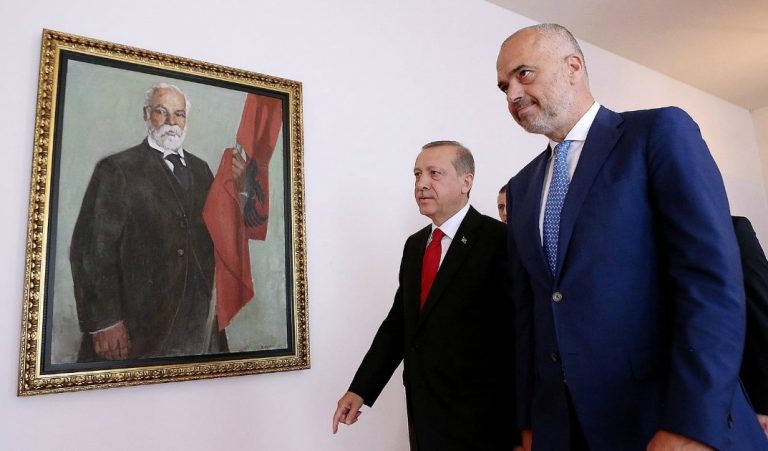Albi Cela. Albi is an International Rule of Law and Security Program Fellow at the Sandra Day O’Connor College of Law at Arizona State University in Washington, D.C.

Three days after being elected to the vice-presidency of the 75th Session of the United Nations General Assembly, the Government of Albania rejected the asylum request of a Turkish citizen, Selami Simsek. He is alleged by Turkish authorities to be a member of the Fetullah Gulen Hizmet Movement, but the asylum rejection contravenes Albania’s international obligations. Simsek’s compatriot, Harun Celik, faced the same fate on January 1, 2020, despite his crying plea for asylum moments before he was sent to the airport to be put on a plane to Istanbul. Upon his arrival in Istanbul, Turkish media hailed his deportation from Albania as a success of the state intelligence agency, MIT. The fate of Mr. Celik remains unknown.
Following the deportation of Mr. Celik, the response of the Council of Europe, European Union, and United Nations was immediate. Andrej Hunko, the Rapporteur on Albania for the Parliamentary Assembly of the Council of Europe, noted that “under the . . . European Convention on Extradition, there shall be no extradition on political offenses” and that “extradition to a state where a fair trial is at least doubtful” is not in line with the European Convention on Human Rights. Mr. Hunko also reminded the Albanian government of the rulings of the European Court of Human Rights, in which Moldova was found in breach of its obligations under the same circumstances. The European Union Presence in Albania reminded the government of its obligations under the 1951 United Nations Refugee Convention.
The 1951 Convention, which Albania has ratified, is centered around the core principle of non-refoulement, which provides that a person must not be returned to a country where they face serious threats to their life or freedom. This principle is considered to be a rule of customary international law.
In a letter sent to the Government of Albania in May 2020 from five UN bodies, including the Vice-Chair of the Working Group on Arbitrary Detention, and Special Rapporteur on the Promotion and Protection of Human Rights and Fundamental Freedoms While Countering Terrorism, expressed their concern that if deported to Turkey, Mr. Simsek was “likely to face detention, prosecution and, potentially, torture or other cruel, inhuman or degrading treatment… and enforced disappearance in transit from Albania, following the alleged short term enforced disappearance and expulsion to Turkey of Mr. Harun Celik on January 1, 2020.”
However, the Albanian government decided to do the opposite, pleasing the authoritarian regime of Turkish President Recep Tayyip Erdoğan. Only a few weeks after the deportation of Mr. Celik, the Turkish Minister of Foreign Affairs, during an official visit in Tirana, urged the Albanian government to hand over more Gulenists. It seems that Mr. Simsek will be the next sacrifice to honor the warm relations between Albanian Prime Minister Edi Rama and President Erdoğan.
The actions of the Albanian government do nothing more than harm Albania’s path to European integration and its standing among countries that share democratic values and uphold the principles of the rule of law and basic human rights. It is crucial for Albania to align with these countries and refuse to deport Turkish nationals based on political allegations, especially now that the potential for European Union membership is closer than ever.